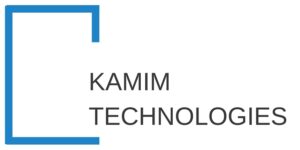KAMIM Technologies Ltd. – The CoolCycle project (Nigeria)
Description
- Type of system: 15 kWp Solar Off-Grid System with 30 kWh Lithium-Ion Battery Backup. This system powers a 12-ton cold room and a 15-ton packhouse, as well as other productive uses such as phone charging and small freezers. Deployed in a rural community (farm gate), the system aims to reduce post-harvest losses and enhance the productivity of smallholder farmers by ensuring reliable and clean energy access and productive use of energy. More details: https://youtu.be/1mtIXdp8sPA
- Location of project: Epe Community, Lagos State, Nigeria
- Completion date: June 2024
The Company
KAMIM Technologies LTD is a leading EPC (Engineering, Procurement, and Construction) company renowned for developing bespoke renewable energy solutions tailored to the residential, commercial, and industrial sectors. Our expertise extends beyond conventional offerings to include specialised systems designed specifically for the agricultural, healthcare, education, and transport sectors.
Our portfolio of innovative products includes solar-powered cold rooms, irrigation systems, dryers, healthcare program support, and educational program enhancements. Our foundation is built on the collective wisdom of our members, who bring over 50 years of combined industry experience to the forefront of renewable energy solutions.
KAMIM Technologies designed and developed the CoolCycle Project and consulted with youth organisations and farmers during its deployment.
The Challenge
The starting point for CoolCycle was recognising the massive post-harvest losses faced by smallholder farmers in Nigeria due to inadequate cold storage infrastructure. Farmers struggled to preserve their produce, leading to significant waste and financial loss. A change was needed to provide an affordable, sustainable solution that could extend the shelf life of agricultural products, reduce food waste, and increase farmers’ income, ultimately improving food security in the region.
Renewable Solution
Solar Energy with Lithium-ion battery storage was chosen for this project because it addresses multiple critical challenges faced by smallholder farmers in rural and underserved areas. Traditional energy sources are often unreliable, costly, and environmentally harmful, making them unsuitable for sustainable development in these regions. Solar energy, on the other hand, is abundant, clean, and cost-effective, especially in areas with high sunlight exposure like Nigeria.
By using solar-powered cold storage units, CoolCycle provides a consistent and affordable energy source that allows farmers to preserve their produce without the need for expensive or polluting diesel generators. This solution not only reduces the carbon footprint but also ensures that farmers can maintain the quality of their products, access new markets, and ultimately improve their livelihoods. The renewable energy approach aligns with the project’s goals of promoting sustainability, economic empowerment, and food security, making it the ideal choice for this initiative.
Project Financing and Costs
This project was funded by Zero Emission Generators (ZE-Gen), an initiative that aims to advance renewable energy-based alternatives in countries that currently rely on fossil-fueled generators. ZE-Gen is a collaborative effort by the Carbon Trust and Innovate UK, with support from the IKEA Foundation and UK aid through the UK Government’s Ayrton Fund, via the Transforming Energy Access (TEA) platform. KAMIM Technologies was initially granted $10,000 for R&D, followed by an additional $50,000 to develop the pilot.
The project is commercialised, meaning it will generate revenue through subscription models such as “Energy as a Service” and “Cooling as a Service.” This approach ensures that the project is not solely dependent on grants, opening up opportunities for private investment and blended financing to scale the project.
Project Outcome
Although the CoolCycle project is still in its early stages, the outcomes achieved so far have been highly promising. Since the deployment of the first pilot in June 2024, the project has begun to make significant impacts in the community, particularly in improving food security, reducing post-harvest losses, and boosting the incomes of smallholder farmers.
Key Outcomes to Date:
- Increased Demand and Utilisation:
- The first pilot facility, a 5-ton capacity walk-in cold room, was quickly overwhelmed by demand, receiving orders of up to 15 tons within its first week of operation. This prompted the deployment of a second cold room with a 7-ton capacity at the same location, bringing the total cooling capacity to 12 tons.
- Enhanced Food Security and Income for Farmers:
- By providing efficient cold storage, the project has drastically reduced post-harvest losses by up to 90%, allowing farmers to sell their produce at higher market values and access both local and international markets, including those in Europe.
- The improved storage conditions have enabled farmers to meet quality standards, significantly enhancing their ability to participate in high-value markets.
- Employment Generation:
- The project has created substantial employment opportunities within the community. For example, during the initial operations, 48 women were employed for pre-sorting, sorting, and packaging produce. Additionally, 16 local artisans and laborers were employed temporarily during the installation of the facilities.
- Local entrepreneurs have also shown interest in leveraging the project’s energy infrastructure for other productive uses, further driving local economic growth.
- Sustainable Energy Utilisation:
- The project has successfully implemented solar PV systems with a total installed capacity of approximately 15 kWp, supported by 30 kWh of battery storage. This has ensured reliable and sustainable energy supply for the cold storage units, even in the absence of grid power.
- The excess energy generated by the facility is being explored for other productive uses, such as phone charging, freezer operations, and ice-making, which could provide additional revenue streams and support further economic activities within the community.
While a comprehensive impact assessment is scheduled for 6-12 months post-completion of the pilots, the initial outcomes strongly indicate that the CoolCycle project is on track to achieve its goals of enhancing food security, empowering local farmers, and promoting sustainable economic growth in underserved communities.
Learn more: https://youtu.be/1mtIXdp8sPA
Next Steps
We are seeking additional funding to scale up and replicate this solution in other regions of the country. We have identified 30 additional locations that would benefit from this infrastructure, with a total funding requirement of $750,000 for implementation.

